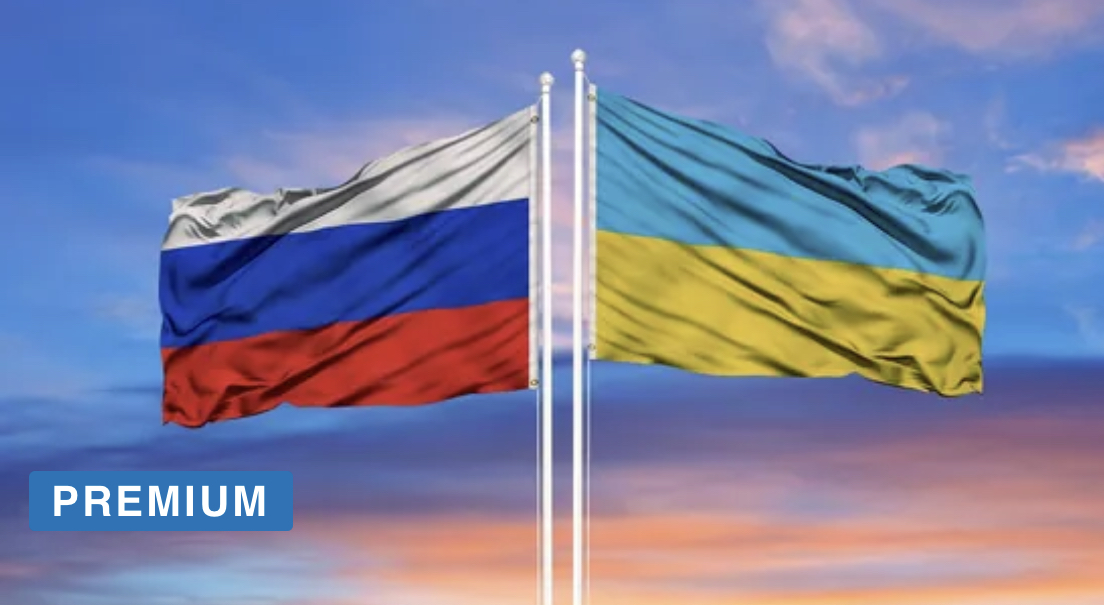
|
Getting your Trinity Audio player ready...
|
(The article was originally published in Hindustan Times on March 2, 2022 . Views expressed are personal.)
Click here to read the article with HT
It is a war between two Vladimirs. One, the indomitable president of Russia, Vladimir Putin, a strong and boisterous leader with decades of experience at strategy and statecraft, and another the diminutive President of Ukraine Volodymyr Zelensky, the Jewish-born actor-turned-politician with no experience of either. It is an uneven battle, between a Cold War giant with a million strong military and a newly born nation-State with an army less than half in size to its rival.
Putin insists that his actions were driven by security concerns that stem from the North Atlantic Treaty Organization (NATO)’s mischievous manoeuvres in Ukraine. But his refrain about “denazification” of Ukraine indicates that it was not just about a military battle. The roots of this conflict lie in history and ideology. And that is where Vladimir, a ubiquitous first name in Russia, becomes relevant.
Vladimir the Great, the 10th-century grand prince of the millennia- old Kievan Rus empire, is considered the father of the modern Russian nation. But the problem is, Ukrainians think that, as the king of Kyiv in 980-1015 AD, he was the father of the Ukrainian nation too. Putin wants to determinedly contest it, not just academically, but physically. Vladimir the Great couldn’t have been a father to many distinct nations, he insists.
“History will be kind to me, as I intend to write it”, Winston Churchill quipped once. Historic interpretations depend on who present them and with what force. In a long address to his countrymen a few days before marching his tanks into Ukrainian territory, Putin dwelled at length on the history of Russia, forcefully demolishing the Ukrainian argument for a separate national identity. People of “Rus”, the empire built by Vladimir the Great, were all Russian, he concluded, insinuating that it was the Austro- Hungarians, Germans, Poles, and Lithuanians, who, on different historic occasions, tried to manipulate the Ukrainians into believing that they were a separate people.
But the Ukrainians, too, have their history. The Ukrainians believe that theirs had been an independent nation for centuries with a distinct language and culture. Vladimir the Great’s kingdom of Kyiv, the present day capital of Ukraine, was an important and powerful empire during the second millennium and was never under the full control of the Russian Czars also, they argue.
It was only in 1922 that Ukraine became a part of the erstwhile Union of the Soviet Socialist Republics (USSR). Even then, Ukrainian Communists maintained a distinct identity from that of the Communist Party of the Soviet Union (CPSU).
Putin was a trusted lieutenant of Boris Yeltsin during the latter’s years in office as president of Russia ater the USSR’s collapse. In gratitude, Yeltsin chose Putin as his successor when he relinquished office in 1999. Putin is an avowed Russian nationalist, who continues to hold the view that the collapse of the Soviet Union was a “catastrophe”. He believes, not wrongly, that Western powers were responsible for the travails of the great Russian nation, including the last time in 1991.
“Tame Russia” had been a project of many European powers in the last millennium. It continued through the Cold War years. The famous “Eisenhower Doctrine” of 1957 was all about the containment of the Soviet Union. Stalin held deep suspicions about the West, so did his successors. Ater the collapse of the Soviet Union, Putin initially attempted to square up with the West by offering to join the European Union. But the doors were not opened for him. Not one to take humiliations lying down, Putin decided to teach the Europeans a lesson.
Besides history, there was thus an ideological angle too. The West treated the Russians as barbarians and their religion and politics as inferior. In retaliation, Putin did everything possible to undermine Western liberal political institutions by not only rejecting them, but also undermining them through digital interventions. His emphasis on ethno-cultural national identity squarely contradicts the West’s modern geopolitical nation-State. Ukraine’s liberal democratic turn, for him, was thus tantamount to an ideological defeat of his brand of politics. Putin was unequivocal that “true sovereignty of Ukraine is possible only in partnership with Russia”.
The Communists detested religion. At the Tehran Conference in 1943, when Churchill suggested that the support of the Pope be mobilised in order to contain Hitler, Stalin famously asked, “How many divisions does the Pope have?”. Putin isn’t anti-religion, but he does suspect that the Catholic powers were trying to weaken the Russian Orthodox identity by weaning away the Ukrainians. Incidentally, the Ukrainian President is a Jew, all the more a reason for Putin’s suspicion.
It is this complex history and ideology behind the conflict that puts India in a difficult position. It could have not accepted Putin’s basic proposition that Ukrainians were not a separate nation, without risking negating its stand on Tibet, Taiwan and other occupied or claimed countries by China. It also could not have wholly rejected the genuine security concerns of Russia in the face of the provocative actions by the NATO allies either.
Today, the global opinion is against Putin’s actions. While India took a principled stand on opposing the war imposed on Ukraine, the optics of it standing with China at the United Nations are raising hackles in sections of the world. Can this great democratic nation continue to remain neutral for too long?




Namaste ji..
It’s very informative thank you
Article on Russia Ukraine is good. It gives ideological and historical perspectives. A good analysis.
Hearing article through The audio is a novel experience.But there are many sound disturbance.kindly corrct
Sir, Looking forward for your profound thoughts behind India’s so appearing strategic silence in eve of prevailing war zone. Regards.